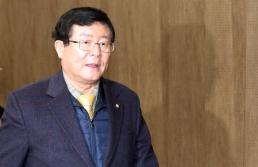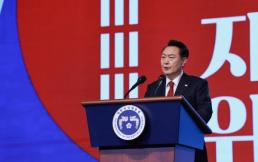Federal Reserve Chairman Ben Bernanke on Monday said the Fed intends to keep the current status quo in place - a low rate environment and a Fed that's not too terribly concerned about the U.S. dollar's decline.
However, in an unusual turn, Bernanke did comment on the U.S. dollar Monday, noting that the Fed is monitoring the value of the dollar closely.
"We are attentive to the implications of changes in the value of the dollar and will continue to formulate policy to guard against risks to our dual mandate to foster both maximum employment and price stability," Bernanke said.
"Bernanke is trying to use words — not interest rates — to prevent the dollar from going even lower," said Jay Bryson, global economist with Wells Fargo Securities.
Bernanke's remarks gave a brief lift to the dollar in trading Monday. But it resumed its fall after traders focused on his assertion that the central bank would hold interest rates low for an extended period. The dollar has posted double-digit declines against other major currencies since spring.
Low interest rates could put additional downward pressure on the dollar. And economists say a free-fall in the value of the dollar, while unlikely, can't be entirely dismissed. Still, low rates are needed to encourage consumers and businesses to spend more and fuel the economic rebound.
"We are attentive to the implications of changes in the value of the dollar," Bernanke said in rare remarks about the greenback. The Fed, he said, will continue to "monitor these developments closely."
Commodity prices — such as oil — have risen lately. That pickup likely reflects a revival in global economic activity and the recent depreciation of the dollar, Bernanke said. Commodities such as oil and gold are priced in dollars so they become cheaper when the dollar falls.
Despite "cross-currents" in the outlook for prices, the Fed chief predicted inflation probably will remain "subdued for some time."
That gives the Fed leeway to hold rates at record-low levels for an "extended period," he said, repeating a pledge made at the Fed's meeting earlier this month.
The sagging dollar has helped sales of U.S. exports because it makes those goods less expensive on foreign markets. But if the dollar were to plunge in value, it could ignite a new economic crisis in the U.S., prompting investors to dump their dollar holdings and driving up domestic interest rates.
Still, by holding rates at record-lows, the Fed risks creating a speculative bubble.
"It's extraordinarily difficult to tell" if a bubble is forming, Bernanke acknowledged. "It's not obvious to me in any case."
If a bubble did form, "we use our interest rate tools to try to meet our mandate — full employment and price stability," he said.
The Fed's decision to hold interest rates at exceptionally low levels after the 2001 recession was blamed for feeding the housing bubble. When the housing boom went bust in late 2006 the economy soon followed.
Economists expect the Fed will hold rates near zero at its next meeting on Dec. 15-16 and into part of next year to help the recovery gain traction.
Bernanke predicted the economy should continue to grow next year, but he warned of "important headwinds" that will restrain the recovery, including a weak job market and tight credit for small businesses and households.
After a record four straight losing quarters, the economy started to grow again in the July-September period at a pace of 3.5 percent. Government-supported spending on homes and cars drove the rebound, raising questions about the staying power of the recovery once that assistance fades.
Bernanke said the rebound reflected more than "purely temporary factors" and predicted growth would continue into next year.
One of the biggest threats hanging over the recovery is rising unemployment. The nation's unemployment rate bolted to 10.2 percent in October. It marked just the second time in the post-World War II period that the jobless rate topped 10 percent.
Some economists think it could rise as high as 11 percent by the middle of next year before starting to gradually drift down.
Bernanke said the unemployment rate "likely will decline only slowly" if economic growth remains "moderate" as he expects.
아주경제= 인터넷뉴스팀 news@ajnews.co.kr
(아주경제=ajnews.co.kr) 무단전재 배포금지
©'5개국어 글로벌 경제신문' 아주경제. 무단전재·재배포 금지


![[르포] 중력 6배에 짓눌려 기절 직전…전투기 조종사 비행환경 적응훈련(영상)](https://image.ajunews.com/content/image/2024/02/29/20240229181518601151_258_161.jpg)



